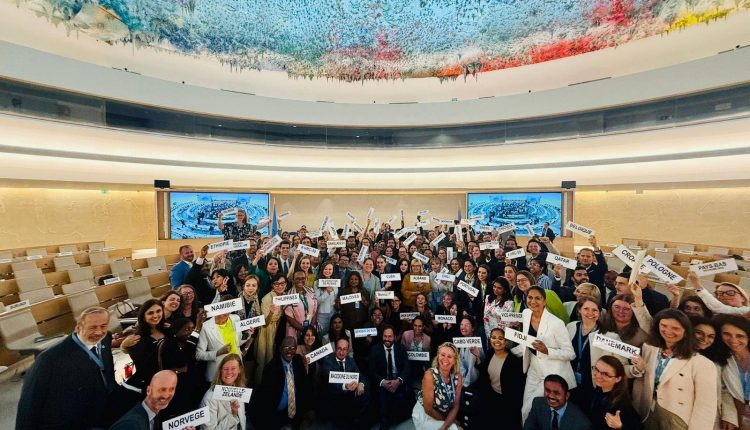Ethiopia leverages UN Rights Council to defend interests, showcase reforms, and promote balanced global cooperation
Addis Ababa, July 9, 2025 (FMC) — Ethiopia has concluded its active and strategic participation in the 59th Regular Session of the United Nations Human Rights Council, held in Geneva from June 16 to July 8, 2025.
As a serving member of the Council, Ethiopia played a proactive role in shaping discussions and outcomes across a broad range of human rights issues, reaffirming its commitment to constructive global engagement while firmly upholding national sovereignty and interests, the Ethiopian Permanent Mission in Geneva told Fana Media Corporation.
Throughout the session, Ethiopia worked to defend its national interests and promote accurate and context-driven narratives regarding the human rights situation in the country. It stressed the importance of sovereign-led solutions and responsible dialogue, pushing back against politically motivated distortions and reaffirming Ethiopia’s ownership over its reform and peacebuilding processes.
The session featured more than nine high-level panels and over 30 interactive dialogues addressing global human rights priorities, including climate change, development, health and education, migration, and international solidarity. Ethiopia’s engagement in these discussions highlighted its comprehensive reform efforts, including its ongoing economic reform agenda, strategic regional corridor development initiatives, and the nationally acclaimed Green Legacy program, which underscores the government’s environmental leadership.
Ethiopia also underscored the progress being made in its transitional justice process and the inclusive national dialogue underway—both of which reflect the country’s pursuit of sustainable peace, reconciliation, and democratic consolidation. Emphasizing homegrown solutions, Ethiopia advocated for the peaceful resolution of disputes through national and regional mechanisms, while calling for the international community to respect the sovereignty of states and avoid external interference in internal affairs.
Moreover, Ethiopia used the platform to reinforce its longstanding commitment to multilateralism. It engaged constructively with UN member states and international organizations to promote mutual understanding, shared responsibility, and cooperation grounded in the principles of equality and respect.
The Ethiopian delegation emphasized that sustainable human rights progress is best achieved through consensus, dialogue, and development-based approaches.
A total of 26 resolutions were adopted under various agenda items during the session, alongside the Universal Periodic Review (UPR) outcome reports of 14 countries. Ethiopia actively participated in resolution negotiations and co-hosted side events, reinforcing its role as a credible and engaged global actor.
Through this broad-based and principled engagement, Ethiopia further enhanced its visibility and credibility on the international stage. It projected a balanced approach to human rights—one that integrates national development priorities, peacebuilding, and inclusive governance with international cooperation and solidarity.
The Government of Ethiopia has reiterated its continued commitment to working collaboratively within the Human Rights Council and other multilateral forums to uphold justice, human dignity, and global equity.

